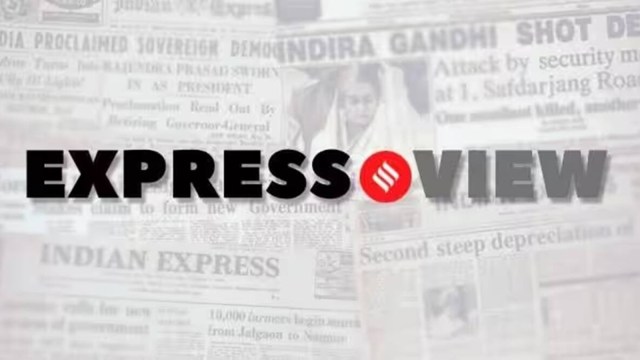
For much of this century, the Communist Party of India (Marxist) has grappled with political and ideological questions. Even as its electoral fortunes waxed, and then waned considerably more, India’s largest communist party sought to define its attitude towards the two most significant forces on the national political stage. The faces of the party in this period — and, at times, of the different facets and approaches within it — have been Prakash Karat, under whose leadership the CPM supported the first UPA government (which it refused to join) and Sitaram Yechury, who succeeded Karat as general secretary and steered the party through the rise and dominance of the Modi-led BJP. M A Baby takes over as general secretary — he was elected at the party congress this week — at a particularly crucial time for the Left. His task is cut out.
Baby rose through student politics to become one of the CPM’s most promising leaders in Kerala. He has been an “organisation man” and state education minister, and knows his way around national politics, not least because of his term in the Rajya Sabha. At a time when culture and education have become political and ideological fronts, especially with the growing clout of the RSS in these spheres, Baby could revive these aspects of the Left movement. That said, the new general secretary comes to the helm when the CPM is severely diminished in Tripura and is no longer one of the electoral poles in West Bengal. The rise of the BJP as the dominant political force has presented new challenges — both for the party in itself and as a constituent of the INDIA bloc. Unlike his predecessor, Baby is not a national name and building up that profile — and the relationships cultivated by Yechury — will be among his challenges.
In the last few months, the party hasn’t shown adequate clarity on two critical issues. The first is “Left unity”. In an interview to this newspaper ahead of the party congress, Karat spoke of the need to build the CPM’s “independent strength” and the differences between Left parties over the ideological character of the BJP. The second is on the future of the INDIA bloc and the CPM’s role in it. Clarity on an approach to Congress and how to combat the BJP is necessary in this regard. Yechury was widely seen and acknowledged as an alliance builder who was instrumental in providing political direction and ideas to the Opposition. Given that the party competes with Congress in Kerala and the TMC in Bengal, maintaining that position will require Baby to manage the factions within his party.